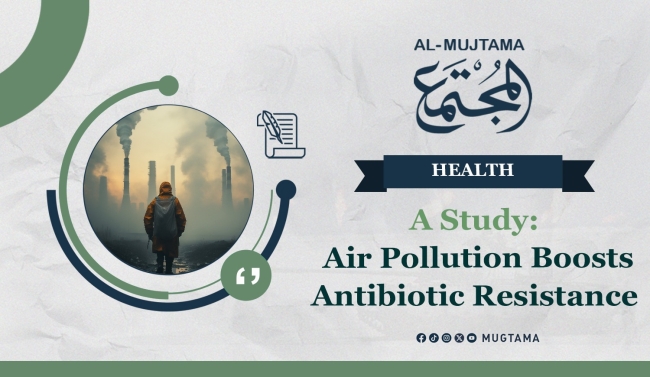A new global study found that air pollution "is linked to an increase in human antibiotic resistance." In the study, published this month in the scientific journal The Lancet, researchers used data from more than 100 countries over two decades to explore the connection between air pollution and antibiotic resistance. The research revealed "a relationship between high levels of air pollution (PM2.5) and high levels of antibiotic resistance, which has grown stronger over time."
Antibiotic resistance is one of the fastest-growing threats to global health. It can affect people of all ages in any country and already kills 1.27 million people annually, according to estimates provided by the researchers. Long-term exposure to air pollution is associated with chronic conditions such as heart disease, asthma, and lung cancer, reducing life expectancy. Short-term exposure to high pollution levels can cause coughing, asthma attacks, and increased hospital visits worldwide.
Reducing air pollution levels can help countries minimize the burden of diseases caused by strokes, heart disease, lung cancer, and chronic and acute respiratory conditions, including asthma, according to the World Health Organization (WHO). In 2019, 99% of the global population lived in areas that did not meet WHO air quality guidelines.
The primary causes of antibiotic resistance remain the misuse or overuse of these drugs to treat infections. However, the new study suggests that the problem is also exacerbated by rising air pollution levels, with the risk increasing as pollution levels rise.
The authors created an extensive dataset to investigate whether air pollution is a key factor in antibiotic resistance, using data from 116 countries between 2000 and 2018. Data sources included the WHO, the European Environment Agency, and the World Bank.
The results indicate that antibiotic resistance increases with higher air pollution levels. For every 10% increase in air pollution, antibiotic resistance rises by 1.1%.
Professor Hong Chen, the study’s lead author from Zhejiang University, said that "antibiotic resistance and air pollution are among the biggest global health threats on their own." According to The Guardian, he added: "Until now, we did not have a clear picture of the potential links between the two, but this research suggests that controlling air pollution could have dual benefits. It would not only reduce the harmful effects of poor air quality but also play a significant role in combating the rise and spread of antibiotic-resistant bacteria."
-------------------------------------------------------------
Source: Agencies


